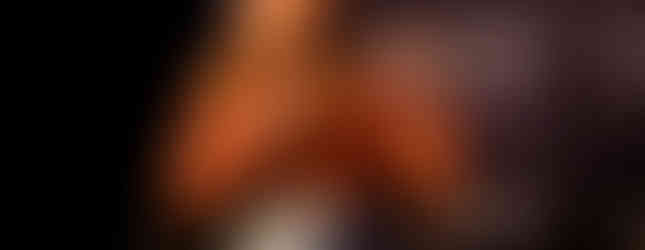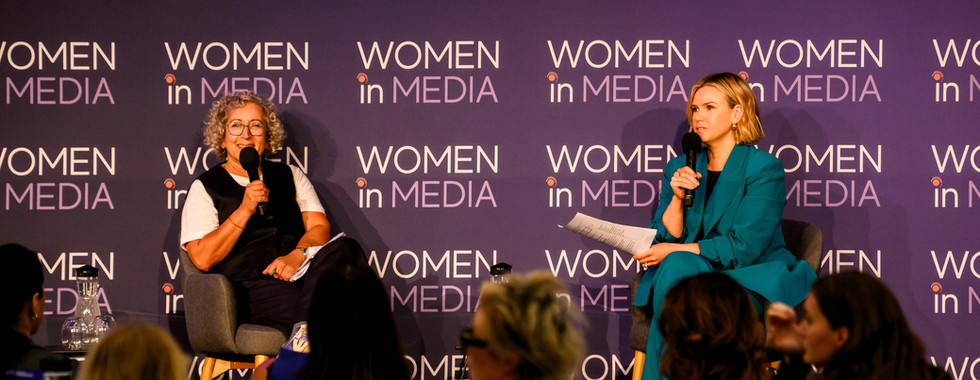Key Takeaways from the 2025 Women in Media National Conference
- Aug 15, 2025
- 3 min read
Updated: Aug 19, 2025
"Never has our industry, the media, been more critical in the world than now, as we face an intense period of horrific conflict and challenges to the truth… on so many fronts."
Anita Jacoby AM, opening remarks, Women in Media National Conference
The day set out to explore the challenges and opportunities facing media today, from representation and storytelling to crisis communications and audience engagement.
The first session, DEI, Quotas and Backlash, dove into the complexities of diversity, equity, and inclusion in media. Across the political spectrum, panellists Charlotte Mortlock, Founder of Hilma’s Network, Media Diversity Australia’s CEO Paula Kruger, Federal Minister for Women Katy Gallagher and Tanya Hosch shared a united perspective on authentic representation, adapting content to reflect audiences, and maintaining progress on gender equity.
As Senator Gallagher noted:
“We can make gains [when it comes to diversity] but we can’t take our eyes off the ball… those gains can be taken away very quickly.”

Audiences and authenticity were a major theme throughout the day. In her keynote, award-winning actor and producer Claudia Karvan OAM spoke about creating space for relatable characters of diverse ages and backgrounds.
“Audiences are watching, they really appreciate authenticity and you have got to be diligent.”
Those sentiments echoed into the session Flipping the Script: Women Shaping the Story. Miles Franklin Award-winning author Shankari Chandran, Head of Stan Originals Amanda Duthie, film producer and CEO of Silent Firework Group Jodi Matterson, and moderator Dilpreet Kaur Taggar of SBS Spice discussed the importance of women in storytelling leadership roles and how personal resonance with a project drives their creative choices.
For those navigating public crises, Crisis Comms: Surviving the Storm offered a masterclass in managing PR disasters. Prof Monica Attard OAM led Sue Cato AM, the RBA’s Sally Cray, and Thinkerbell’s Adam Ferrier through strategies on taking accountability, standing out with creativity, and delivering content that is both compelling and authentic.
"If brands screw up in some kind of way, you'll probably empathise with them a bit more. Try to f**k up occasionally and people will like you more." - Adam Ferrier

The Future of Media panel examined workplace culture, audience trust, and evolving content. Screen Australia CEO Deirdre Brennan, WPP Media ANZ CEO Aimee Buchanan, Nine’s Managing Director of Streaming and Broadcast Amanda Laing, and Seven’s Director of Morning Television Sarah Stinson, with Megan Brownlow moderating, discussed creating supportive workplace environments and the continued appetite for trusted, locally told stories.
Looking at the next generation, Hannah Ferguson of Cheek Media, Jessie Stephens of Mamamia, and Sarah Thornton of Paramount ANZ, moderated by Maria Lewis, explored how Gen Z is engaging with content, the rising power of podcasts, and the ways women creators are challenging stereotypes:
“We’ve been trained to consume media that isn’t about us since the day we are born.”
- Sarah Thornton, Head of Unscripted, Paramount ANZ

Cue the conversation about mentoring – where seasoned media pros, including ABC News Breakfast’s Bridget Brennan, screen producer Jodi Matterson, and President of Network 10 Beverley McGarvey, joined moderator Libbi Gorr for a candid conversation. Now at the top of their game, each reflected on the mentors who helped them navigate a male-dominated industry and shared how they’re paying it forward to support the next generation of women in media.
Closing the day was The Atlantic’s Hanna Rosin, visiting from Washington, DC. She reminded us that the power of women lies in telling our own version of the story — the one we know to be true:
"The problem for women, since forever, is that whoever is in power loves to tell stories about 'all women'... The power of women is that we wriggle out of these stories."
"It is more critical than ever as a room full of women who tell stories... to use whatever medium we have to tell stories as we know them to be true, as we see it and as we feel it."
"Women move, we are objects in motion. And objects in motion stay in motion. We just keep moving, and that's what makes me feel better about the world."






















































































